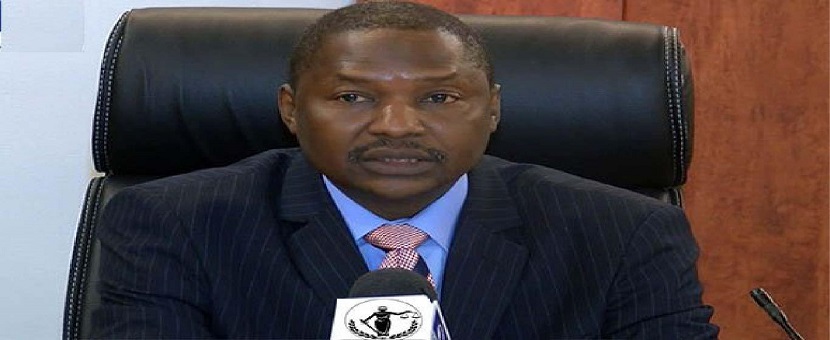Introduction
According to the Punch*, during the ongoing ministerial screening exercise of the newly appointed Ministers by President Buhari at the floor of the Senate, the immediate past Attorney-General of the Federation (AGF), Abubakar Malami (SAN), was asked why he decides to disobey court orders by refusing to see to the release of persons who have been granted bail by courts of competent jurisdiction. The Learned Senior Advocate was quoted as saying, in his response, as follows:
“I concede that I have a responsibility as AGF to protect individual rights but looking at the provisions of Section 174 of the Constitution, I want to state further that the Office of the AGF is meant to protect public interest and where the individual interests conflicts with the public interest of 180 million Nigerians that are interested in having this country integrated must naturally prevail and I think that position has been stated by the apex Court in the case of Asari Dokubo v. Federal Republic of Nigeria that when an individual interest conflicts with public interest, the public interest will naturally prevail.”
Section 174 of the Constitution
Under Section 174(1) (a)-(c) of the 1999 Constitution (as amended), the AGF is empowered to institute and undertake criminal proceedings against any person before any court of law in Nigeria (except court-martial); to take over and continue any such criminal proceedings; and to discontinue any such criminal proceedings.
Section 174(3) further provides that the AGF shall exercise the above powers having regard to public interest, the interest of justice and the need to prevent abuse of legal process.
The Principle in Asari Dokubo v. Federal Republic of Nigeria**
The famous Alhaji Mujahid Dokubo-Asari, was a one-time leader of the Niger Delta Peoples Salvation Front (NDSF) but now leader, Niger Delta Peoples Volunteer Force (NDPVF). He is also a member, Pro-National Conference Organisation. He and his men, sometime ago, were alleged to have threatened to take-up arms against the Nigerian Government. The Association was said to have also revealed its plan to cause civil disorder that would lead to the overthrow of the Government. Alhaji Dokubo was subsequently arrested by the Police and taken to Court on a five-count charge of conspiracy, treasonable felony, forming, managing and assisting in managing an unlawful society, publishing of false statement, and being a member of an unlawful society. On 6th of October, 2005, Alhaji Dokubo, was arraigned before the Federal High Court, Abuja Division. He pleaded not guilty to all the 5 counts. On the same day, his counsel, Mr. Festus Keyamo SAN, moved his application praying the trial court to admit Alhaji Dokubo to bail. The learned trial Judge refused to grant him bail. Alhaji Dokubo was dissatisfied and appealed to the Court of Appeal which dismissed the appeal. Further dissatisfied, he appealed to Supreme Court. Mr. Keyamo SAN argued on his behalf that the Court of Appeal was wrong when it reached a conclusion that there was acceptable evidence of threat to national security by the Appellant, Alhaji Dokubo; and that assuming (without conceding) that the case filed revealed a strong case of threat to national security on the face of it, that same cannot suspend the right to bail as enshrined in section 35 of the 1999 Constitution.
In dismissing the appeal, Ibrahim Tanko Muhammad, JSC (now CJN) while delivering the leading Judgment held:
“The above provisions of section 35 of the Constitution leave no one in doubt that the section is not absolute. Personal liberty of an individual within the contemplation of section 35(1) of the Constitution is a qualified right in the context of this particular case and by virtue of subsection (1)(c) thereof which permits restriction on individual liberty in the course of judicial inquiry or where, lightly as in this case, the appellant was arrested and put under detention upon reasonable suspicion of having committed a felony. A person’s liberty, as in this case, can also be curtailed in order to prevent him from committing further offence(s). It is my belief as well that if every person accused of a felony can hide under the canopy of section 35 of the Constitution to escape lawful detention then an escape route to freedom is easily and richly made available to persons suspected to have committed serious crimes and that will not augur well for the peace, progress, prosperity and tranquillity of the society. I find support in so saying from Irikefe’s JSC (as he then was) earlier pronounced in the case of Echeazu v. Commissioner of Police (1974) NMLR 308 at page 314. I entirely agree with the court below that a charge of treasonable felony is a very serious offence and is prejudicial to national security. I believe neither the appellant nor his counsel would sit down to fold up his arms, if on the seat of power, to allow any citizen to put his reign into terror and utter hopelessness or despondency while dancing to the music of a citizen who plots a coup de tat against him. He will certainly fight it to the end.”
Take-Home Points
What the Supreme Court did in Dokubo v. FRN was to refuse the Appellant bail in the overall interest of the nation. Assuming the Supreme Court upheld the Appellant’s appeal, thereby granting him bail, can the Attorney-General of the Federation or any other person validly and legally disregard the Order on the ground of overall public interest? Absolutely no! In fact, it is against public interest for any authority to ever disregard an order made by a Court of competent jurisdiction. Therefore, the position of the Honourable Attorney-General in the context of the question posed is, with respect, clearly misleading. In the recent case of Fidelity Bank v. The M.T. Tabora (2018) LPELR-44504(SC), the Supreme Court stated that:
“…It would at least be against public policy for persons, without a backing of the Court, to pronounce a Court decision a nullity, act in breach of the decision whereas others may set out to obey it.”
There is nothing in the Constitution that empowers or encourages the AGF to disobey any order of court in the public interest or any other interest whatsoever. It is extremely important that these issues are not mixed up. In the truest sense, any failure to obey an order made by a court of competent jurisdiction is a disregard to due process and an abuse of legal process, contrary to the Constitutional mandate of the AGF. It does not lie in the mouth of the AGF to imply that the Supreme Court has laid the foundation for disobedience to court orders. The principle stated in Dokubo v. AGF was stated to guide the courts in determining issues bordering on certain fundamental rights such as right to liberty. The Constitution itself made it clear that this right is qualified and not absolute by providing the necessary qualifying elements.
The point that should concern the AGF is perhaps, making it clear or providing proof that there was no subsisting Order for bail which has not been complied with; or that bail was granted and same was not being perfected by the person involved who is expected to meet the relevant conditions as prescribed by the court.
For the avoidance of doubt, an Order of Court remains sacred, so sacred that even if it was wrongly made, it validly subsists until set aside. In any case, compliance with the order can only be delayed by the immediate filing of an appeal praying a higher court to set it aside or by an application to the same court (in appropriate cases) urging the court to set the order aside. The AGF or any other person lacks the superior mandate to review an order of court with the intention of determining the existence of the so called public interest. The Supreme Court, per Ogbuagu, JSC, in LP v. INEC (2009) LPELR-1732(SC) said:
“It is now firmly settled that a court Order must be obeyed even if such Order is perverse, until such a time that the Order is set aside by a competent court.”
The natural prevalence of public interest as stated by the AGF does not mean that public interest derives its definition and superiority by forces of nature or mere reason; in that even in the face of a contrary court order, somehow, the forces of nature will uphold public interest to stand against an order of court.
Conclusion
No one, including the AGF, has the power to disobey court orders in the interest of the public. This is the whole bedrock of the rule of law – that no one is above the law. If a court makes any pronouncement, that in itself is law. Whatever is the import of the AGF’s response at the Senate must be understood in the context of the foregoing explanations.
We shall close by quoting the position of the Supreme Court, per Achike, JSC, in Babatunde v. Olatunji (2000) LPELR-697(SC) where it was aptly stated thus:
“Matters appertaining to judicial orders or judgments, for that matter, are not generally treated with arrogance or levity. Speaking for myself, it is rather officious and treading on a perilous path for one to arrogate to oneself the right to choose and pick between court orders in terms of whether they are valid or null and void. In fact, since there is a strong presumption in favour of the validity of a court’s order, it behoves everyone to keep faith with the order of the court. It makes no difference that ex-facie it appears that the court that made the order is without jurisdiction because at the end of the day an order of the court subsists and must be obeyed until set aside by a court of competent jurisdiction. To, therefore, disobey an order of the court on the fancied belief that the said order is null for any reason whatsoever – even if it subsequently turns out that the order in fact is proved to be null – is a risky and unadvisable decision because until the said order is finally determined to be null and void by the court. the order subsists with the string attaching to it unmitigated.”
*Punch – https://punchng.com/why-i-disobey-some-court-orders-ministerial-nominee-malami/
See also https://dailypost.ng/2019/07/26/ministerial-screening-disobeyed-court-orders-ex-agf-abubakar-malami/
** (2007) LPELR-958(SC)
Featured Image Credit: Daily Post














